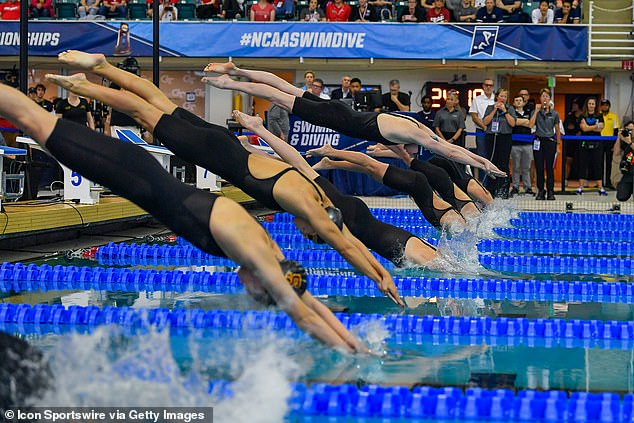The NCAA decision to change its policy on transgender athletes in accordance with a recent executive order from President Donald Trump does not go far enough, Texas Attorney General Ken Paxton argued in a new court filing.
The issue, Paxton explains in his request for a temporary injunction, is the absence of any gender screening on the part of the NCAA.
‘In spite of the Amended [Transgender Eligibility Policy] and the NCAA’s representations that it has brought itself into alignment with President Trump’s ”clear, national standard,” the NCAA has allowed, and will continue to allow, biological men to compete in ”women’s” sports categories through two principal avenues: (1) the NCAA’s decision not to screen the sex of student-athletes, and (2) the NCAA’s reliance on sex ‘assign[ments]’ as determined by birth records,’ reads the motion filed last week in Lubbock County District Court.
By opting against gender screenings, Paxton added in a press release, the NCAA is doing a ‘sleight of hand is designed to intentionally deceive consumers into believing that biological men are no longer allowed to participate in women’s sports.’
The filing did not specifically call for physical examinations of athletes as a way of determining their genders, but does suggest performing SRY gene tests – a method used by World Athletics, the international governing body for track and field events.
The NCAA changed its rules earlier this month to limit participation in women’s sports to athletes who were assigned ‘female’ at birth.

Ken Paxton wants the NCAA to screen all athletes to determine their true genders

The NCAA decision to change its policy on transgender athletes in accordance with President Donald Trump’s executive order does not go far enough, said Texas AG Ken Paxton (pictured)

Transgender Penn swimmer Lia Thomas and Kentucky’s Riley Gaines react after finishing tied for 5th in the 200 Freestyle finals at the NCAA Championships on March 18th, 2022
The move closely followed Trump’s executive order, banning transgender athletes from women’s and girls’ sports while threatening to defund any school that fails to adhere to the edict.
Trans issues were a major topic over the 2024 US Presidential election. Many liberals argued for inclusiveness, while conservatives felt trans athletes in women’s sports was both unfair and a potential safety risk.
Curiously, the NCAA has only 10 or so transgender athletes out of 500,000 across college sports.
The NCAA’s revised policy permits athletes assigned male at birth to practice with women’s teams and receive benefits such as medical care. An athlete assigned female at birth who has begun hormone therapy can practice with a women’s team but cannot compete on a women’s team without risking the team’s eligibility for championships.
Paxton also said the NCAA has left ‘ample opportunity for biological men to alter their birth records and participate in women’s sports,’ a claim the organization said is not true.
‘The policy is clear that there are no waivers available, and student-athlete assigned male at birth may not compete on a women’s team with amended birth certificates or other forms of ID,’ the NCAA said in an emailed response to The Associated Press.
Member schools — there are 1,100 in the NCAA — are responsible for certifying athlete eligibility for practice and competition. Local, state and federal legislation can supersede NCAA rules.
Paxton’s filing refers to last week’s announcement by World Athletics that part of its new recommended guidelines would bring back gender testing, a practice that hasn’t been part of track and field since the 1990s. Most of the screenings can be done by swabbing the inside of an athlete’s cheek.
This article was originally published by a www.dailymail.co.uk . Read the Original article here. .

